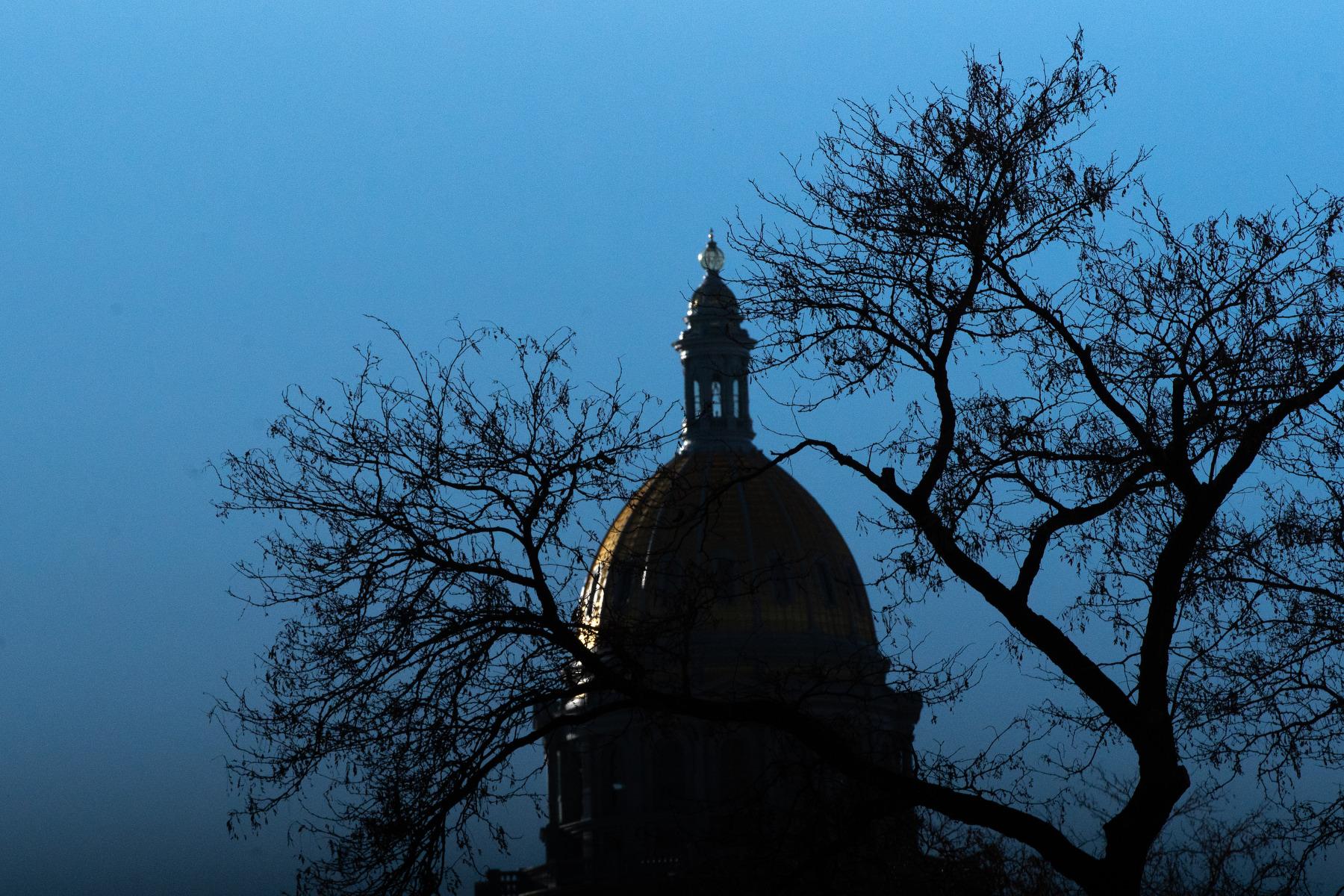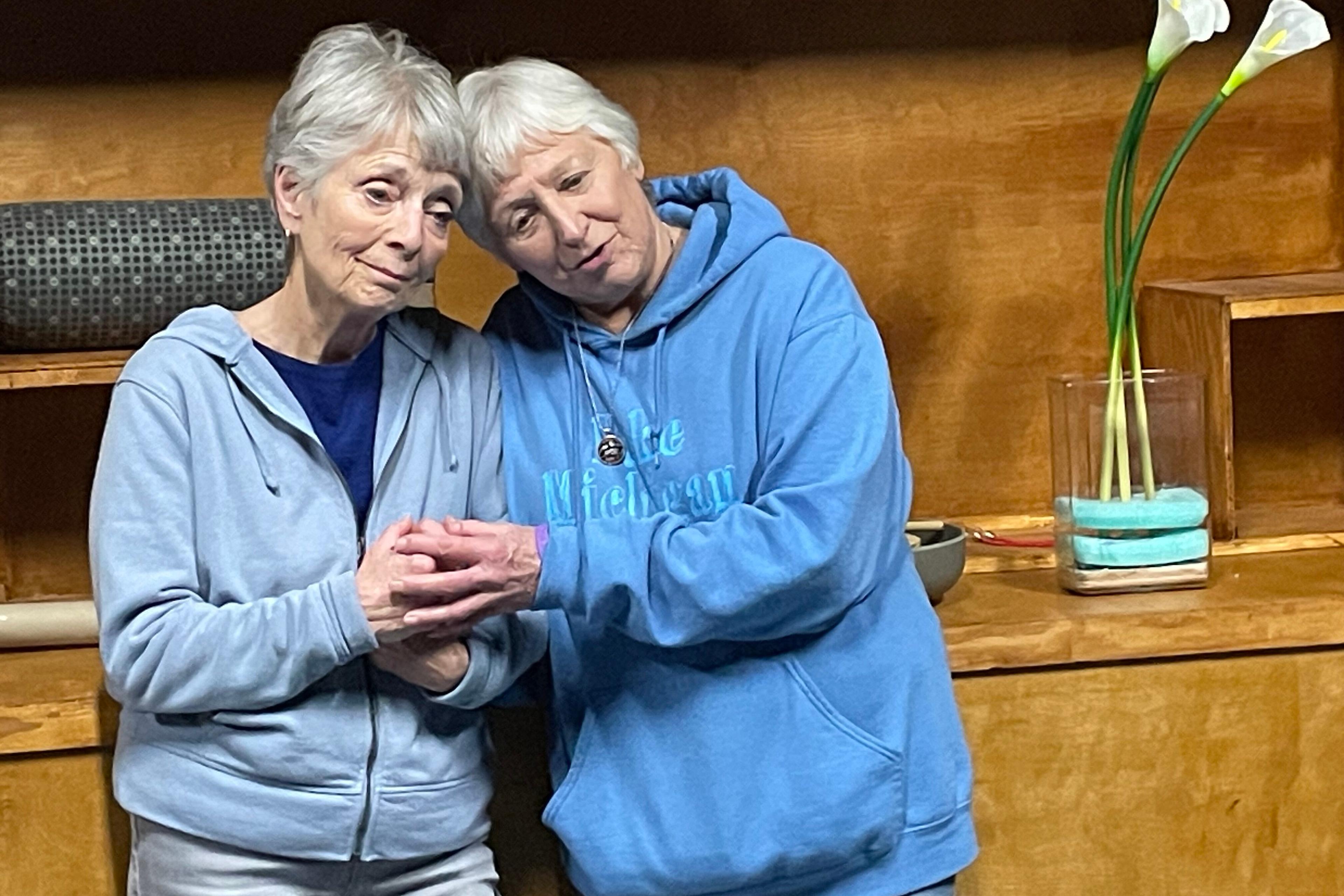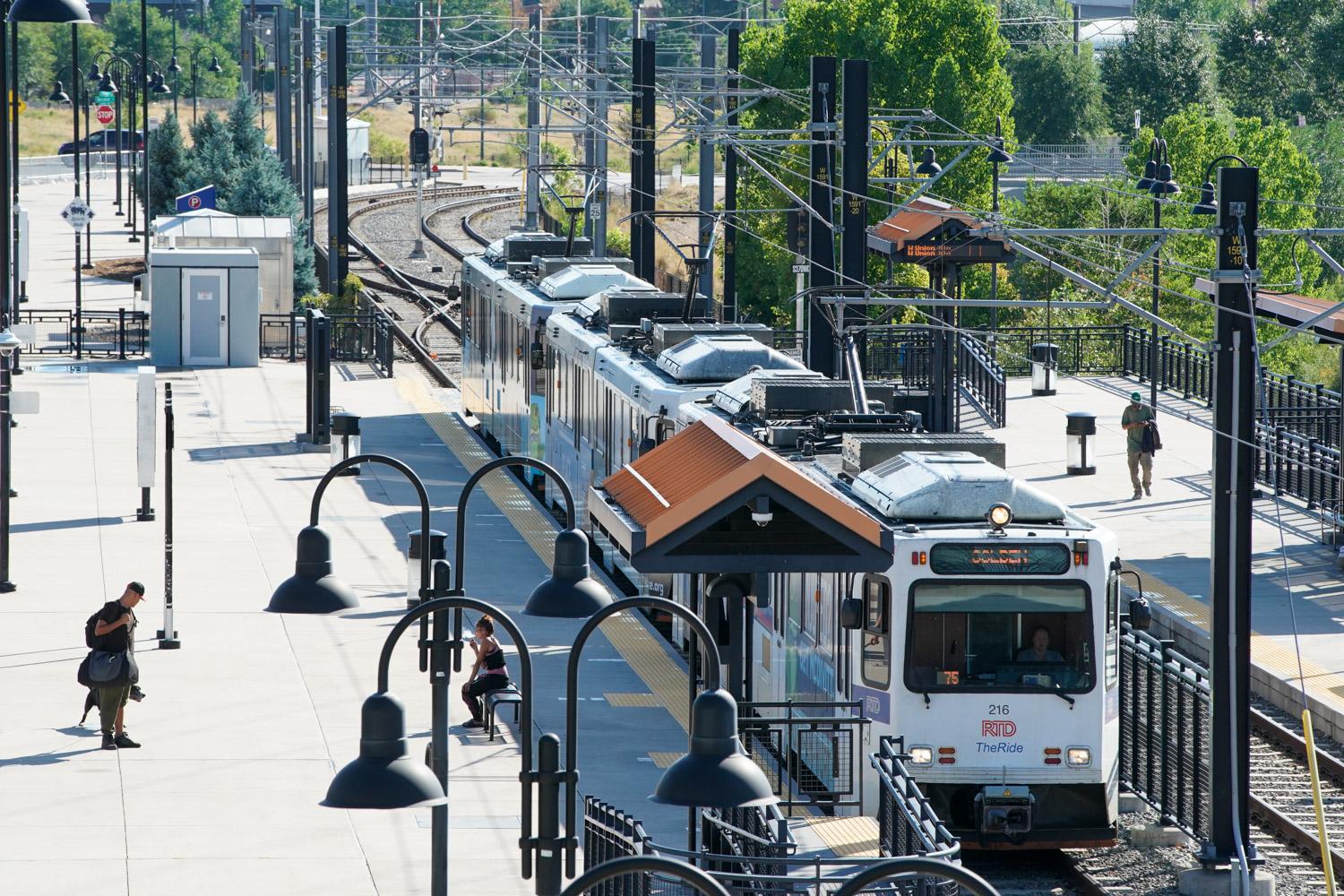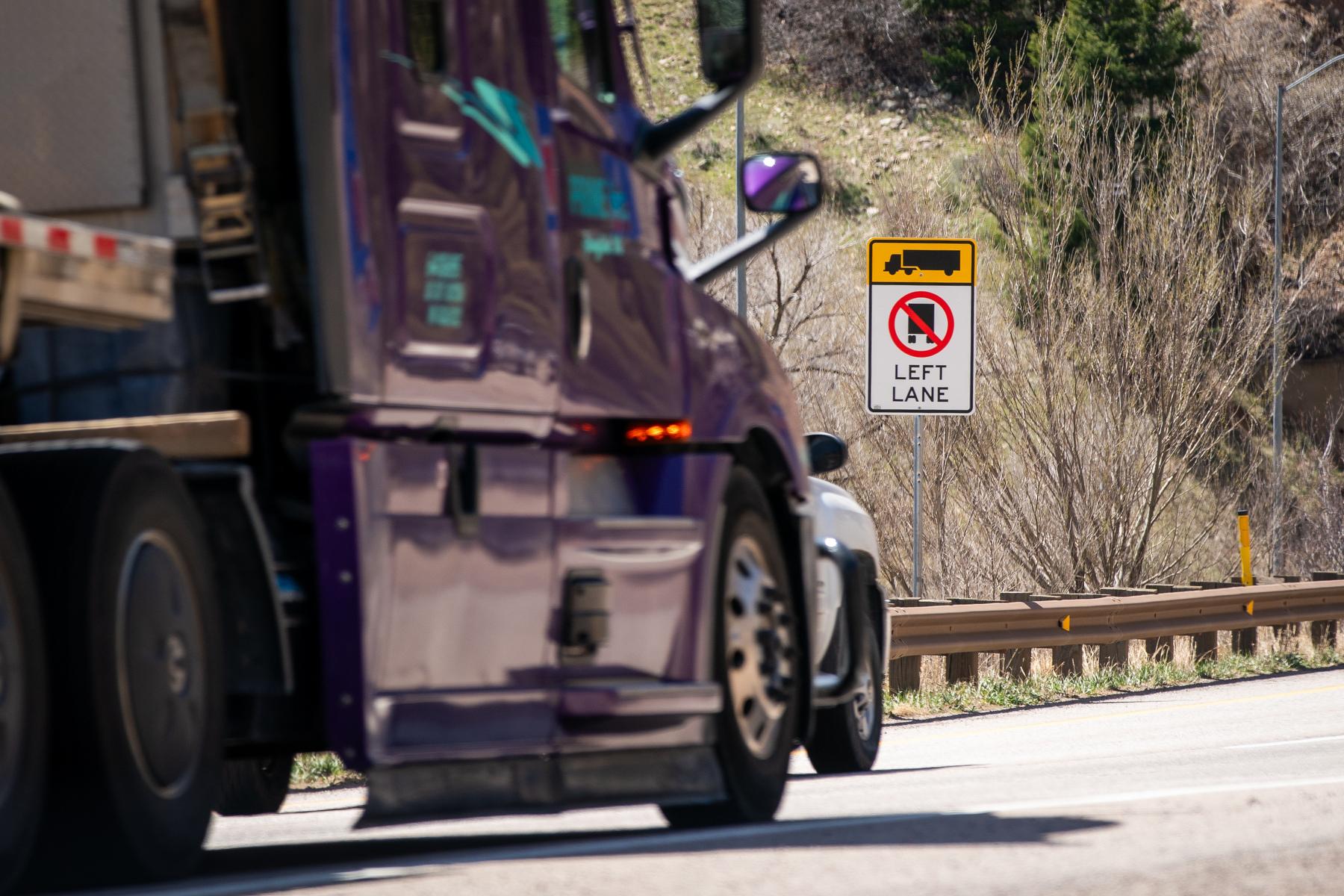
What is left to say about Interstate 70 traffic?
The vehicular phenomenon climbing out of Colorado’s Front Range into the Central Mountains has inspired bluegrass songs, think pieces and now dominates state small talk at a level traditionally reserved for the Denver Broncos. Well, one CPR reader is moving on from complaints to solutions and reached out to Colorado Wonders with a pitch:
“Why can't we just have a few hours a day where we don't have trucks on the roads to get the ski traffic up and then you can allow them after 10:00 a.m. when that ski traffic rush hour has died down?” Rick Buhl asked.
Buhl said he got the idea from a period in his life when he worked in Washington, D.C. There, Interstate 66 has areas that are off-limits to commercial vehicles near D.C’s infamous Beltway traffic. Could Colorado do something similar?
“I suppose, legally, it is feasible,” state Sen. Dylan Roberts, a Democrat from Frisco, said. “Politically? I think that would be much more challenging and maybe from a policy standpoint as well, that there obviously is a need and value in commercial trucking happening at all times throughout the day and throughout the year.”
However, Roberts — along with a bipartisan group of Colorado legislators — believes some more modest changes to state law regarding commercial vehicles in general could make a difference.
While Senate Bill 100 wouldn’t authorize skiers-only traffic hours, it could improve safety on Interstate 70 overall, hopefully reducing closures and backups that frustrate drivers like Buhl.
“It would institute a no-pass restriction or a no-farthest left lane restriction for commercial vehicles on those key sections, which are going — east to west — Floyd Hill, the Georgetown Hill, up and down from the Eisenhower/Johnson tunnels, Vail Pass, Dowds Junction and Glenwood Canyon,” Roberts said.
Those restrictions would be in place for all road conditions, except in cases when a truck can safely pass a vehicle traveling below the speed limit. This restriction is already being enforced in Glenwood Canyon, where road closures have been a significant problem, said House co-sponsor state Rep. Elizabeth Velasco.
“Every weekend that I go home, I worry about the roads being closed, “Velasco said, “ I have been stranded on the Eagle side when there's no hotel rooms and there's nowhere to stay.”
Since the Colorado Department of Transportation began increasing awareness of the restrictions, Velasco said the canyon has seemed safer. In 2022, there were 101 lane-usage stops in Glenwood Canyon, according to Colorado State Patrol.
Originally, the bill called for such lane restrictions all the way from Morrison to Glenwood Springs. That idea was trimmed down to the problem sections of the interstate following some amendments. The bill would also expand requirements for commercial vehicles to carry tire chains.
“The second major part of the bill creates a requirement that all commercial vehicles over 16,000 pounds carry chains from September to May every year on I-70 west of Morrison, as well as several key mountain passes on U.S. routes in the state,” Roberts said. “So places like Rabbit Ears Pass, Wolf Creek Pass, Hoosier Pass — the places where you need chains if weather comes along in order to safely navigate those mountain passes,” Roberts said.
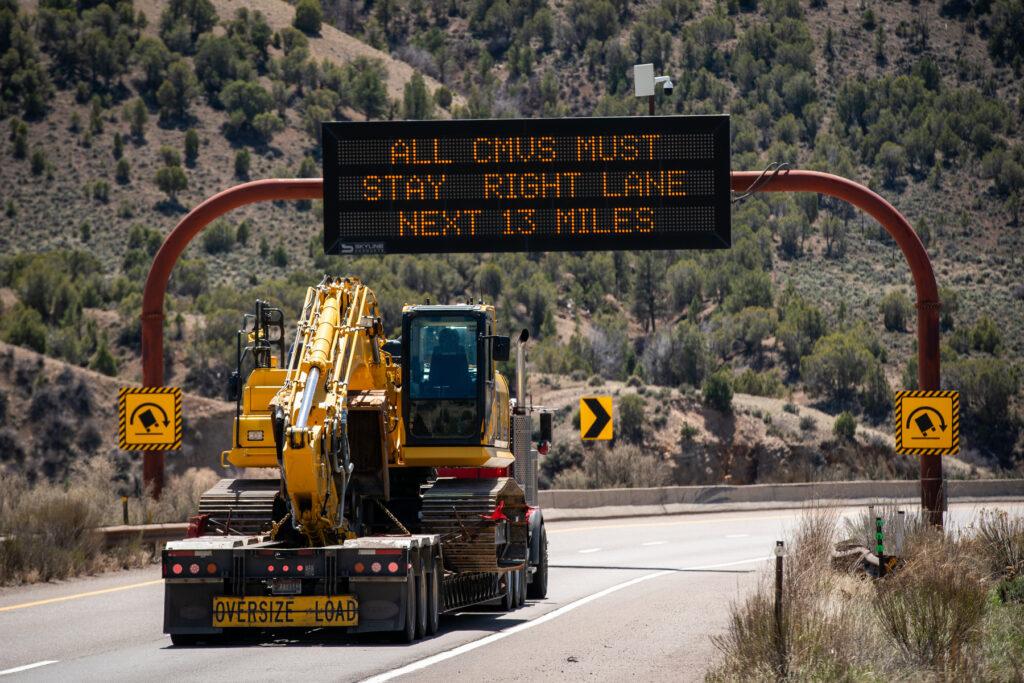
At a House committee meeting earlier this month, CDOT Executive Director Shoshana Lew said trucks lacking chains lead to lengthy standstills on mountain passes.
“We have many, many incidents from this winter where we saw that the backups in the closures emerged from significant numbers of unchained vehicles,” Lew said. “During the large storm in early March, that was one of the key reasons why Floyd Hill was closed for as long as it was because each of those trucks, as you'll hear from CSP, took a long time to pull out.”
The bill would also double the cost of speeding violations in certain areas called “heightened speed limit enforcement zones”. The legislation does have the backing of some commercial trucking groups, but only after some amendments — such as the one that cuts back the areas identified for left-hand lane restrictions.
Greg Fulton, president of the Colorado Motor Carriers Association, told the House Committee on Transportation, Housing and Local Government that his organization supports the bill after some lengthy conversations with lawmakers. But, he added, the state could do more to keep roads clear by increasing areas for chaining up or parking for drivers who want to wait out a storm.
“I think it was evident in that big (March) snowstorm. We had a number of folks who would've rather sat this out but there was nowhere to park,” Fulton said. “At that point in time, we didn't have any parking from all the way from Kansas, probably to the middle of Utah. So what we had out there was a situation — we had people that could not park anywhere and so many of them would've actually, essentially sat this out but they couldn't.”
Lew told the committee that CDOT is working to add chain-up areas. CDOT will also be conducting a study on how these and other factors impact highway closures, should the bill pass, which Roberts said could be helpful in informing future improvements to the roadway.
“Something like this hasn't been done in many years, and so I'm hopeful that as it gets put in place over the next few winter seasons, we're going to see some major improvements because of this bill passing,” Roberts said.
The bill’s fiscal note lists about $164,000 in cost over the next two years, with a minimal impact on revenue from the increased speeding violations. Roberts said the low cost of the change would be greatly overshadowed by its impacts on the road.
“It's a very low-cost or no-cost way to improve safety and efficiency on the corridor. And it's a huge return on investment because the data shows that every hour that I-70 is closed, it costs the economy $2 million here in Colorado — two million per hour is a huge hit,” he said. “That's not to say the immense frustration and anger that people get when they're stuck on I-70 trying to get to or from the mountains.”



